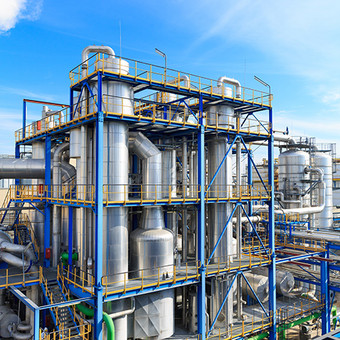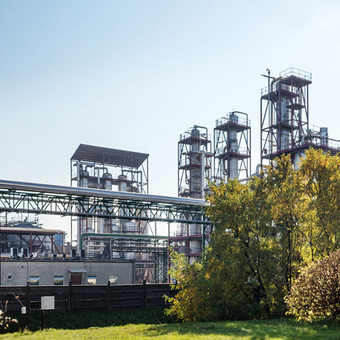Pischelsdorf|Austria
Since 2008, AGRANA runs in Pischelsdorf, Lower Austria, Austrias only bioethanol fuel plant.
The site of the industrial estate in Pischelsdorf was selected in view of its location in the heart of the raw material production region, its excellent links to the Danube, roads and railway, as well as the ideal range of energy supply possibilities.
Every year, a total of around 260,000 m³ of bioethanol are produced at AGRANA’s facility in Pischelsdorf | Lower Austria – a quantity sufficient to cover all of Austria’s domestic requirements were E10 to be introduced. AGRANA currently exports around half of the bioethanol produced in Lower Austria, thereby giving away the potential CO2 savings Austria could fully make use of itself, rather than having to purchase expensive emission rights on the global market. The introduction of E10 in Austria would not require additional production capacity or land for cultivating crops – exports of bioethanol would simply be lower.
HUNGRANA plant in Szabadegyháza|HU
HUNGRANA Kft. in Szabadegyháza, in which AGRANA has a 50 percent stake, produceds isogluces and bioethanol in a combined starch processing plant with a nominal capacity of up to 190.000 m³ per year. Corn, corn gluten and live-stock feed are by-products of the process to produce isoglucose and bioethanol. Corn is the only raw material used by HUNGRANA. The bioethanol produced at the HUNGRANA plant is also used in line with the EU directive on the substitution of petrol.

